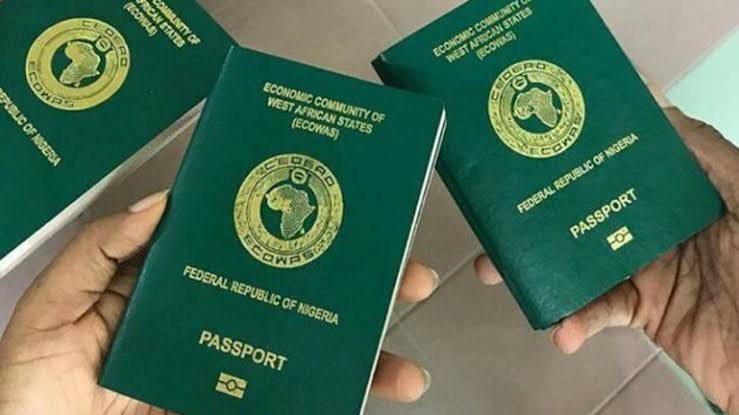Strong indications have emerged that a potential problem of scarcity of the e-passport booklets is looming, occasioned by the non-payment of huge production debt to vendors and major stakeholders involved in the value chain of the travel document.
LEADERSHIP learnt that unless the federal government, through the offices of the minister of finance and the accountant general of the federation (AGF), halts its monthly deduction of the whooping 50 per cent fund from the income paid into the Nigeria Immigration Service (NIS) Treasury Single Account (TSA) from passport sales, specifically opened for the acquisition of the e-passports, the looming shortage of the travel document may not be averted.
A top source at the passport office at the Nigeria Immigration Service headquarters, who wished to remain anonymous, explained that the misconception is that the gross income paid by passport applicants goes directly to the NIS TSA, from where the service is supposed to make payment to all stakeholders involved in the passport value chain.
He lamented that, unfortunately, before the said income drops, the federal government, which regards the money as net income, takes out 50 per cent, leaving the Immigration service with nothing reasonable to service their vendors and all stakeholders involved in the passport production process.
He said, “Let me give you an example, the cost of the 32-page passport booklet outside Nigeria is $132, while the cost of the 64-page category is $230. If you apply outside Nigeria and you pay in dollars, the money goes straight into the Federal Account which is shared amongst the three tiers of government every month by the Federation Account Committee (FAAC).”
The officer, who confirmed that there is currently a shortage of the 32-page booklets across the 48 passport-issuing outlets outside Nigeria, and the 44 outlets in the country, however, acknowledged that the agency presently has the 64-page booklets in excess but that the demand for it was very low.
“Our service providers are owed over N16 billion while printed booklets are stuck in warehouses due to our inability to offset these huge debts,” he said.
The source explained that there are booklets to be delivered to the NIS by the printers, but they are stuck in Nigeria Customs Service and DHL warehouses due to the huge debts owed them.
“The Customs Service, DHL and two Nigerian banks are amongst service providers that are insisting on the payment of their outstanding N16 billion balance before the documents would be released to us. As a matter of fact, we are meant to understand that the manufacturing firms based Slovenia, Malaysia, and another in Malta handling the e-passport projects are yet to be reimbursed in line with our agreement to always make payment two weeks after printing and supplying the e-passports,” he stated.
Another competent source at the Ministry of Interior told our correspondent that the minister of interior, Dr Tunji-Ojo, who is worried that the frightening threat of passport booklets shortage might hinder the ongoing passport reforms, single handedly sourced for and obtained grants of about N10 billion from outside the system to salvage the mess. However, unfortunately, that amount cannot make any meaningful impact.
“As I speak to you, the minister isn’t relenting; he is still busy trying to get more, but the truth is that this move is not sustainable,” he said.
Major stakeholders and experts are insisting that things can only get back if the total monies deducted from the passport production TSA is returned to the rightful owners.
“We are at the verge of approaching our very understanding President Ahmed Bola Tinubu to stop the ACG, the Minister of Finance and the CBN, letting them know that the whooping 50 per cent they usually take is not actually theirs,” the source said.











